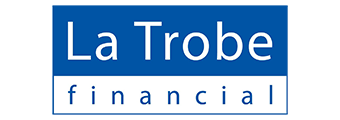When setting up an SMSF, nominating your death benefit will determine what happens should you pass.
Advertisement
Looking to take control of your retirement? This table below features SMSF loans with some of the most competitive interest rates on the market.
| Lender | Home Loan | Interest Rate | Comparison Rate* | Monthly Repayment | Repayment type | Rate Type | Offset | Redraw | Ongoing Fees | Upfront Fees | Max LVR | Lump Sum Repayment | Additional Repayments | Split Loan Option | Tags | Row Tags | Features | Link | Compare | Promoted Product | Disclosure |
|---|---|---|---|---|---|---|---|---|---|---|---|---|---|---|---|---|---|---|---|---|---|
6.74% p.a. | 6.76% p.a. | $3,240 | Principal & Interest | Variable | $null | $230 | 70% |
| Promoted | Disclosure | |||||||||||
6.99% p.a. | 7.04% p.a. | $3,323 | Principal & Interest | Variable | $0 | $220 | 70% | Disclosure | |||||||||||||
7.44% p.a. | 7.49% p.a. | $3,476 | Principal & Interest | Variable | $395 | $null | 60% | ||||||||||||||
7.49% p.a. | 7.54% p.a. | $3,493 | Principal & Interest | Variable | $0 | $221 | 80% | Disclosure | |||||||||||||
7.00% p.a. | 7.41% p.a. | $3,327 | Principal & Interest | Variable | $30 | $825 | 80% | ||||||||||||||
6.84% p.a. | – | $3,273 | Principal & Interest | Variable | $0 | $995 | 80% | ||||||||||||||
7.24% p.a. | 7.26% p.a. | $3,407 | Principal & Interest | Variable | $0 | $230 | 80% |
| Promoted | Disclosure |
What is a binding death benefit nomination?
When a self-managed super fund (SMSF) member dies, the SMSF generally pays a death benefit to a dependant or other beneficiary of the deceased.
If the recipient is a dependant of the deceased, the death benefit can be paid as a lump sum or as a steady income stream. The income stream can be new or a continuation of an existing stream.
The ATO states: SMSF members can nominate who will get their benefits when they die. A binding death benefit nomination directs the trustee to pay the benefit to a legal personal representative or a dependant.
If the recipient is not a dependant of the deceased, the death benefit must be paid as a lump sum.
Who is a dependant?
To understand how death benefits can be paid you need to know who is a dependant.
A person is a dependant of a deceased member if, at the time of death, that person was:
-
The deceased's spouse.
-
A child of the deceased – this includes a child younger than 18 years, or a child who was financially dependent on the deceased and younger than 25 years, or if the child has a disability.
-
In an interdependency relationship with the deceased – this is a close personal relationship between two people who live together, where one or both provides for the financial, domestic and personal support of the other.
How are dependants paid?
Benefits paid as a lump sum to a dependant are tax-free but a lump sum paid to a non-dependant will be taxed.
Lump sums can be paid in cash or non-cash form - for example, shares or property.
The trustee may need to withhold tax from a death benefit. Working this out can be complex and will depend on a number of factors. If a trustee has to withhold tax, they must register for PAYG withholding and complete some other ATO forms.
Members of the SMSF may have made a death benefit nomination asking the SMSF trustees to pay their death benefit to their nominated beneficiaries. While having regard to the member's nomination, the SMSF trustees must ensure the nominated beneficiaries are entitled to receive death benefits under the trust deed and super law.
If the deceased member did not nominate a beneficiary, the trustee may pay it to the deceased's estate for the executor to distribute it according to the instructions in their will.
It's wise to plan ahead. If there is a dispute over the payment of death benefits which can't be resolved, it may lead to costly court action. Seeking out professional advice and referring to the ATO website will help you understand the process.
See also:
Image by Vidar Nordli-Mathisen via Unsplash








 Harrison Astbury
Harrison Astbury
 Harry O'Sullivan
Harry O'Sullivan

 Aaron Bell
Aaron Bell
 William Jolly
William Jolly

